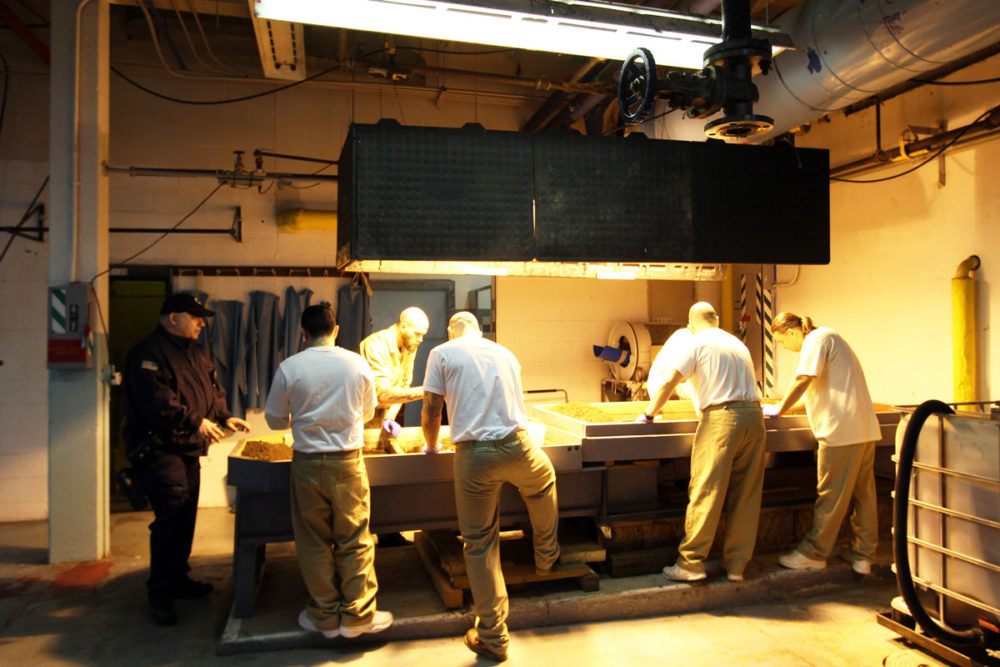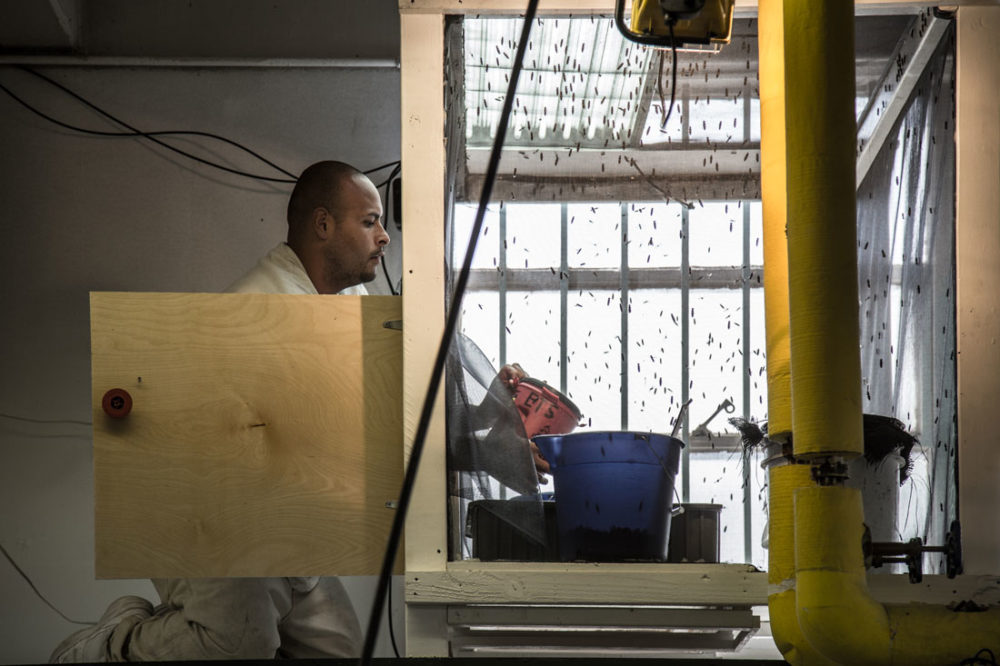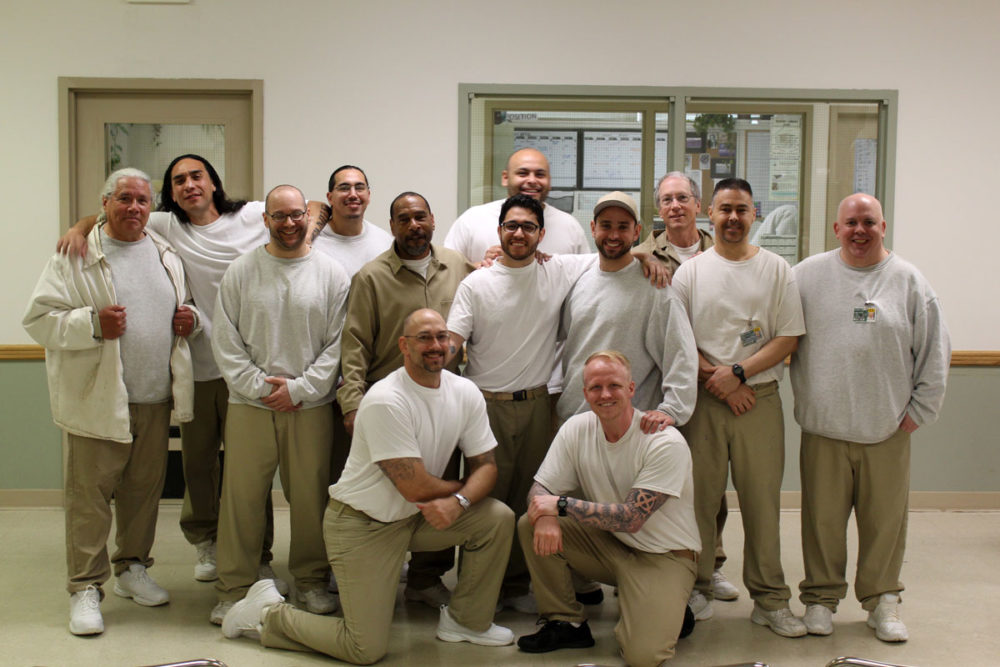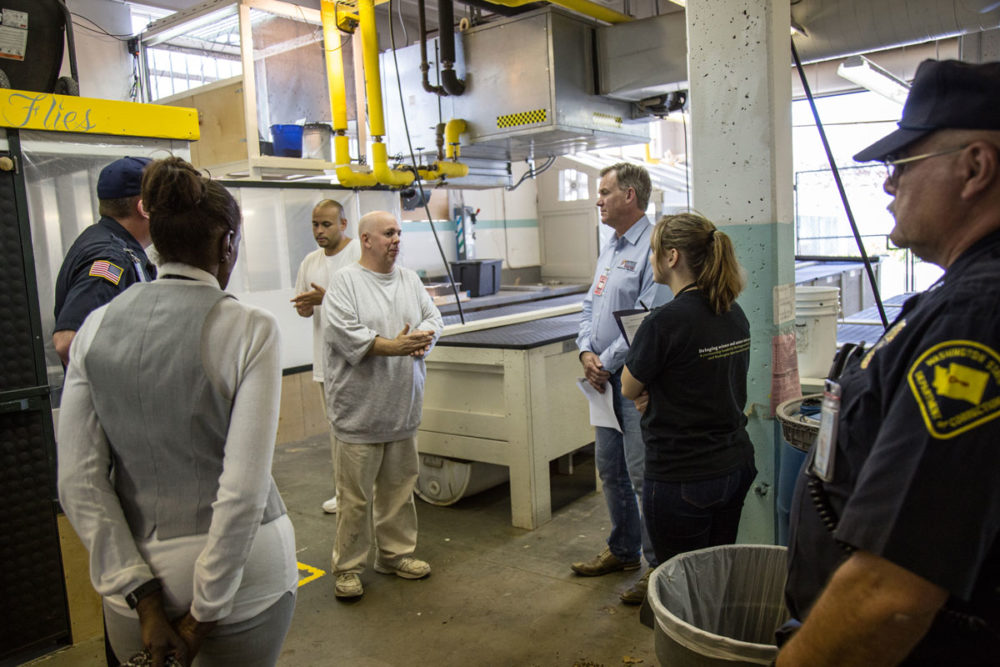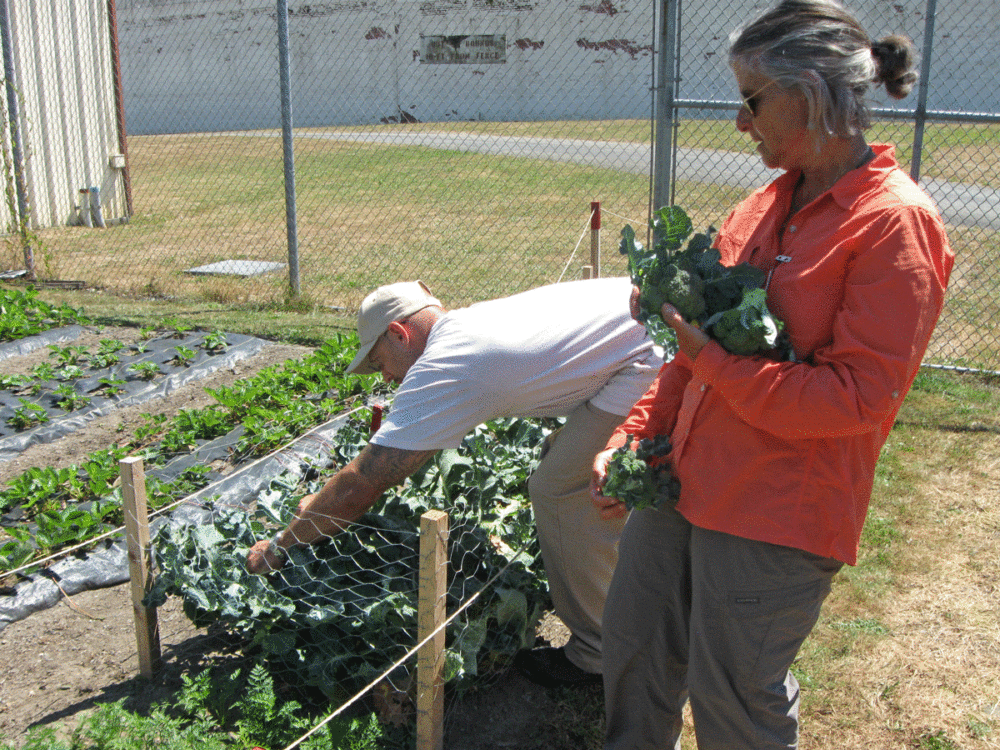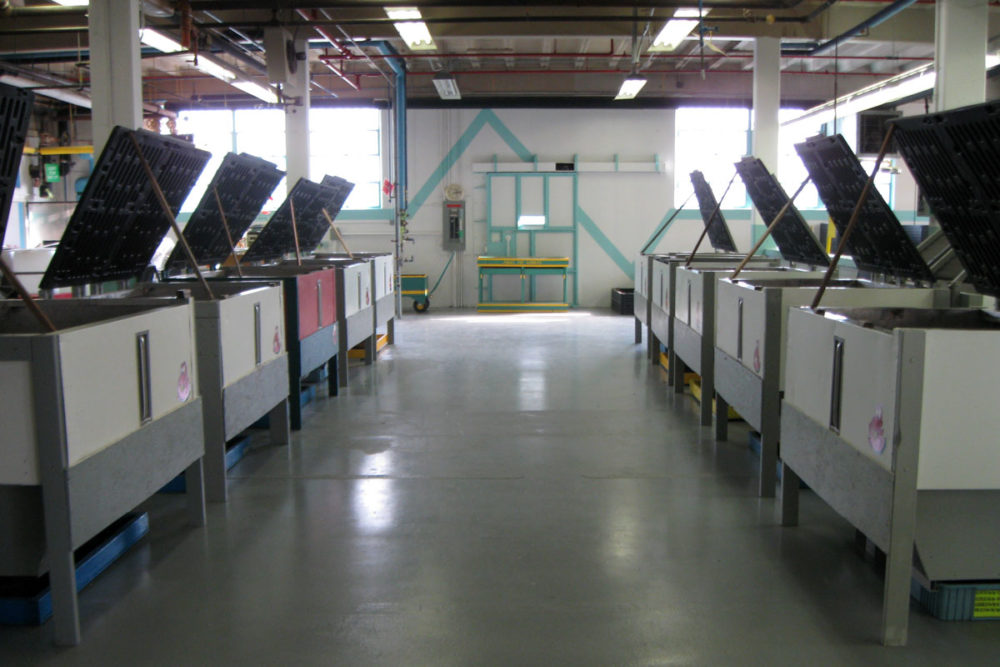Composting with “bugs”
The composting program housed by the Washington State Reformatory Unit (WSRU) at Monroe Correctional Complex is like none other. The program was founded in 2010 by two men incarcerated in the unit. Nine years later, the program has grown enormously and partners with multiple non-profits and schools. The program is internationally recognized as a model and is still led and operated by incarcerated technicians and teaching assistants.

The program currently processes 20,000 lbs of food waste every month. To transform waste into valuable resources, technicians work with three kinds of “bugs”:
- Worms (also known as red wigglers and the “vermi” in vermicomposting): Worms consume discarded grains, vegetables, and fruits. Their droppings are called castings, and worm castings are highly prized as fertilizer and soil amendment.
- Bokashi: Specialist bacteria can ferment/pre-process citrus, dairy, and meats that the worms cannot.
- Black soldier flies: Larvae of a stingless wasp (looks like a fly) can consume all kinds of food waste; they turn it into more larvae that are prized as high-quality animal feed

These approaches to composting represent relatively new technologies. Building on earlier studies, the WSRU program has developed, tested, and improved methods. Their current focus is multiple small-batch trials with black soldier flies – cutting edge research that stands to change how we deal with human food waste and feed domestic and ocean food stocks.

Partnerships and wider impacts

UW research plot 
Technician & professor harvest
From the beginning, members of WSRU’s staff have supported and championed the program. The program has provided starter kits for other residential facilities, including the sizable worm farm in Washington State Penitentiary‘s Sustainable Practices Lab (SPL). The program worked with Seattle’s Tilth Alliance and SPP partners at Evergreen to create formal education and certification for technicians and they have graduated two classes so far. In 2018 and ’19, graduate students from University of Washington (UW) visited the program to conduct research on soil amendments’ effects on vegetable growing; compost technicians advised on and supported those studies. In addition, University Beyond Bars staff offer vital program support and connection to other educational efforts at the prison.

Scientists, corrections specialists, professors, students, and entrepreneurs have visited and toured the facility. Technicians created a virtual tour for the International Conference on Sustainability in 2019.
The composting program is co-located with WSRU’s SPL where technicians create toys and crafts from scrap wood donated by Canyon Creek Cabinet Company, rebuild wheelchairs for Wheels for the World and bicycles for local non-profits. The SPL donates all items. A Roots of Success classroom is also in the SPL, allowing ideas to be shared amongst instructors, students, and technicians.
Origin Story
In 2010, friends Nick Hacheney and Rory Brown took on the challenge of composting food waste with worms. Starting with a literal handful of worms and the gumption to figure it out, they built the first bins from whatever materials they could find: laundry baskets and buckets. They were lucky to have strong support from staff members Donna Simpson and Officer Art King; it’s critical to have staff allies who can help bring in resources and talk to other staff about making sure new activities don’t get in the way of essential operations or policy.

Worm breeding bins 
Worm composting bins
Nick and Rory learned how to grow the number of worms in breeding bins, a process called vermiculture. They also learned how and began to refine composting with worms, known as vermicomposting. Fairly quickly, they realized they could process food waste year-round, with almost no odor. They were sold!

2014 was a year of big changes. Rory moved to another prison, Officer Jeffry Swan took over supervision, and Evergreen staff began to play a bigger role. Nick presented at Turning Keys TEDx, and his representation of the program and the SPP model was remarkable. At the same time, technicians built new composting bins–these ones made of reclaimed mattress parts–and began trials with Bokashi.

Program evolution has continued at a fairly rapid pace. In 2015, they established the partnership with Tilth Alliance, and together with SPP-Evergreen developed formal education and certification. Also they started working with black soldier flies.
The first fly shack has grown into a state-of-the-art testing facility. The program is championed by Officer Goodloe, Sergeant La Munyon, Public Information Officer Susan Biller, and Monroe’s Superintendent Obenland. Nick works as a Teaching Assistant for University Beyond Bars. Lead technicians Juan Hernandez and Rudy Madrigal mentor the next generation of program leaders. And as Nick says, they are eager “to see what the next great bug” of their future will be.
Blogs on the Composting Program
2019
Origin Story of a Compost Program
2018
Recognizing a world-class program
2017
Prison Shares Earthworm Wealth with Northwest Trek Wildlife Park
2016
Sustainable Practices Lab at Washington State Reformatory
2014
Ideas Worth Spreading: “Turning Keys” in a Washington prison
2012
Using Worms to Reduce Food Waste at Monroe Correctional Complex!
